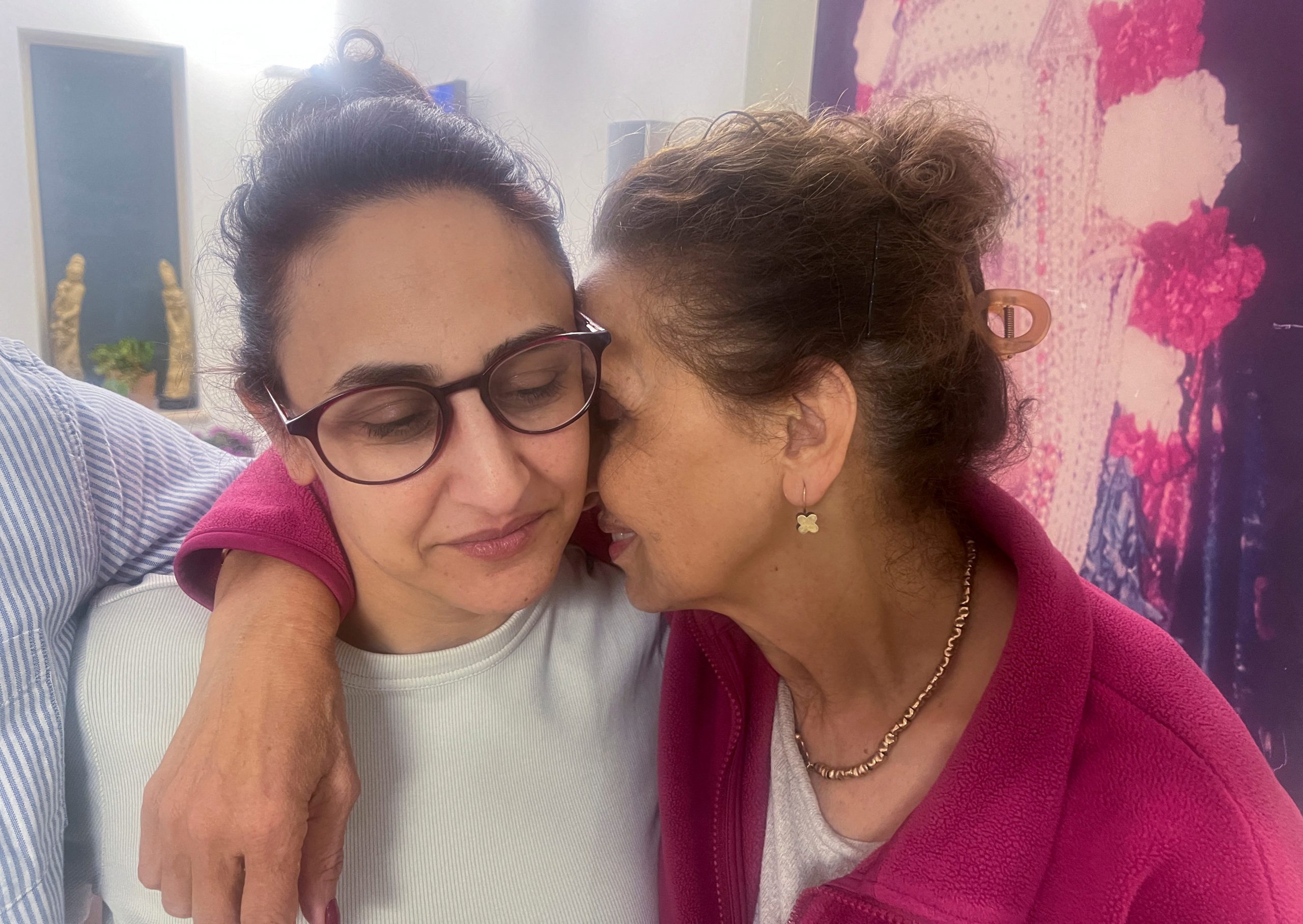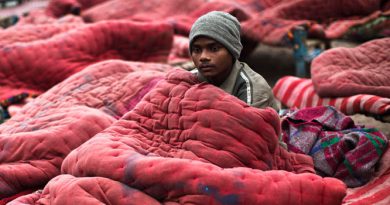Gaza captivity was ‘Russian roulette’, freed Israeli hostage says
Yavne (Reuters) – Israeli Sharon Alony-Cunio survived 52 days as a hostage in Gaza with her two little girls before she was released in an Israel-Hamas swap deal. But she fears for the life of her husband who is still captive in the bombarded Palestinian enclave.
Now back home with her twin three-year-olds, Julie and Emma, she pleads for the remaining 137 hostages to be freed. “Every minute is critical. The conditions there are not good and the days go on for ever,” she told Reuters in her first interview.
“It’s a Russian roulette. You don’t know whether tomorrow morning they’ll keep you alive or kill you, just because they want to or just because their backs are against the wall,” said Alony-Cunio, 34.
Alony-Cunio was one of 240 people taken hostage on Oct. 7 by Hamas gunmen who burst through the border with Israel and killed around 1,200 people.
The militants who took over her kibbutz, Nir Oz, which lies a little over a mile from Gaza, set fire to her house and took her away at gunpoint after she climbed out the window.
She was taken across the border with her husband David and one of their twins, she said. Their second daughter was held separately in Gaza for 10 days before they were reunited in captivity with 12 other hostages under conditions she said were tough, particularly for children.
“Everyone gave up food for them (the girls). You don’t know if in the evening there will be a pita (bread) so in the morning you save some for the evening. Everything is very calculated, a quarter of a pita, half a pita to keep for the next morning.”
Sometimes they were fed dates and cheese and sometimes they would split meat rice and rations for six among the 12 of them.
Waiting to be allowed to go to the toilet was a problem for the girls, she said, so they had to use a sink and a rubbish bin. “Sometimes when there was a power cut, they let us open the door, they drew the curtain and then we would whisper. How do you keep a child together for 12 hours with whispers only?”
Her group of hostages was held above ground and moved a few times, she said, but with memories still raw and with her husband still inside, Alony-Cunio was reluctant to give more details of her capture and time as a hostage.
But one of the biggest hardships, she said, was simply not knowing what was being done to get them out.
“Every day there is crying, frustration and anxiety. How long are we going to be here? Have they forgotten about us? Have they given up on us?”
A seven-day truce saw more than 100 hostages released. The rest are still being held incommunicado as Israel bombards Gaza vowing to take out Hamas. More than 18,000 people have been killed in Gaza, according to local health authorities.
Many families of the 137 hostages still in Gaza, whose names and photos on posters line the streets of Israel, are scared.
“My children are torn,” Alony-Cunio said. “I am torn without my second half, the love of my life, the father of my daughters who ask me every day, where is daddy?”
David was separated from them three days before their release on Nov. 27, before fighting resumed. Getting the remaining hostages out should be top priority, she said.
“I am petrified I will get bad news that he is no longer alive,” Alony-Cunio said.
“We are not just names on a poster. We are human beings, flesh and blood. The father of my girls is there, my partner, and many other fathers, children, mothers, brothers.”


